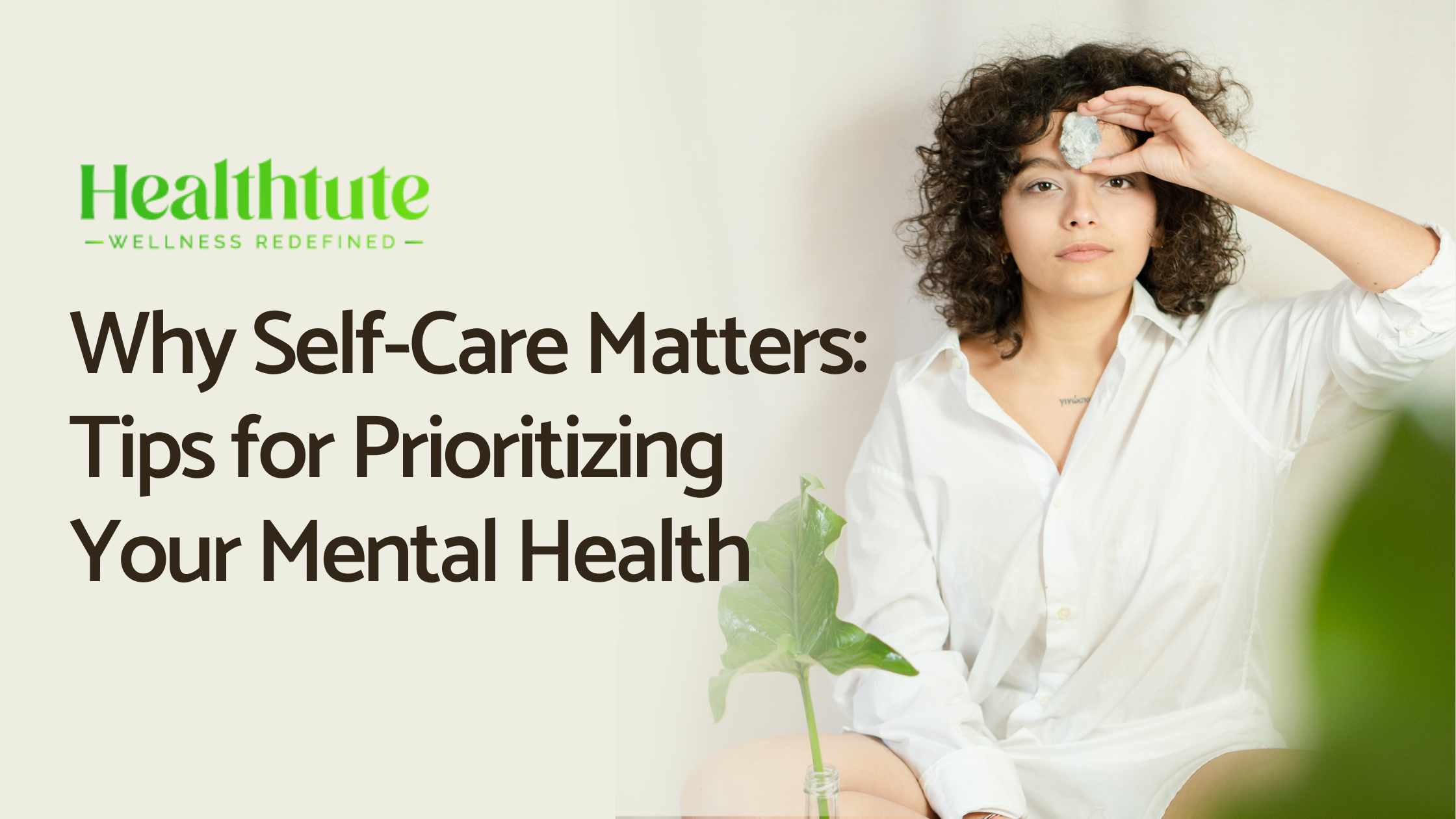In the fast-paced world we live in, it’s easy to get caught up in the hustle and bustle of everyday life. Amidst the demands of work, relationships, and various responsibilities, one thing often takes a backseat: our mental health. However, taking care of your mental well-being is crucial for overall happiness and success. In this article, we’ll delve into the importance of self-care and provide you with valuable tips on how to prioritize your mental health.
Understanding Self-Care
Self-care goes beyond the occasional pampering session. It’s about making conscious choices to prioritize activities that nourish your mind, body, and soul. Engaging in self-care routines helps in reducing stress, preventing burnout, and boosting your overall well-being.
Signs of Neglected Mental Health
It’s important to recognize the signs of neglected mental health, such as persistent feelings of sadness, anxiety, fatigue, and difficulty concentrating. These signs serve as indicators that it’s time to prioritize self-care.
The Importance of Prioritizing Mental Health
Prioritizing your mental health isn’t selfish; it’s necessary. When you invest in self-care, you’re better equipped to handle life’s challenges, build healthier relationships, and achieve your goals with a clear mind and focused energy.
Tips for Effective Self-Care
Setting Boundaries
Learning to say no and setting healthy boundaries is crucial for preventing burnout. It’s okay to decline additional responsibilities when you feel overwhelmed.
Practicing Mindfulness
Mindfulness involves being present in the moment without judgment. Engaging in mindfulness techniques, such as meditation and deep breathing, can help alleviate stress and improve your mental clarity.
Regular Physical Activity
Exercise isn’t just beneficial for your physical health; it’s great for your mental health too. Engaging in regular physical activity releases endorphins, which are natural mood lifters.
Healthy Eating Habits
A balanced diet rich in nutrients can have a positive impact on your mood and energy levels. Avoid excessive consumption of processed foods and prioritize fresh fruits, vegetables, and whole grains.
Pursuing Hobbies
Engaging in activities you love can provide a sense of accomplishment and joy. Whether it’s painting, dancing, or playing an instrument, hobbies can be therapeutic.
Balancing Work and Personal Life
Striking a balance between work and personal life is essential for mental well-being. Make time for activities outside of work that bring you happiness and relaxation.
Seeking Professional Help
There’s no shame in seeking help from a mental health professional. Therapy and counseling can provide you with tools to manage stress and navigate challenges.
Building a Supportive Social Network
Surrounding yourself with supportive friends and family members creates a strong foundation for your mental health. Meaningful connections provide comfort and encouragement.
The Power of Positive Affirmations
Challenge negative self-talk with positive affirmations. Remind yourself of your strengths and worthiness regularly.
Avoiding Overwhelm
Break down tasks into manageable steps to avoid feeling overwhelmed. Celebrate small achievements along the way.
Embracing Imperfection
Nobody is perfect, and that’s okay. Embrace your flaws and mistakes as opportunities for growth.
The Role of Restful Sleep
Quality sleep is essential for mental rejuvenation. Create a sleep-conducive environment and establish a consistent sleep schedule.
Overcoming Stigma
Addressing mental health stigma is vital. Open conversations can help normalize discussions about mental well-being.
Cultivating Gratitude
Practicing gratitude shifts your focus to the positives in your life. Start a gratitude journal to remind yourself of the good things around you.
Conclusion
Prioritizing your mental health is not an option; it’s a necessity. Incorporating self-care practices into your daily routine can lead to a happier, more fulfilling life. Remember, taking care of your mental well-being is a journey, and it’s worth every step.
FAQs
- What exactly is self-care? Self-care encompasses intentional actions taken to promote physical, mental, and emotional well-being.
- Is self-care only about relaxation? While relaxation is a part of self-care, it also involves activities that nurture different aspects of your health.
- Can I practice self-care on a busy schedule? Absolutely. Self-care doesn’t have to be time-consuming; even small moments of self-reflection and relaxation can make a difference.
- How can I overcome the guilt of prioritizing myself? Remember that self-care isn’t selfish. By taking care of yourself, you’re better able to support others too.
- What if self-care doesn’t improve my mental health? If self-care alone doesn’t significantly improve your mental health, consider seeking guidance from a mental health professional.

